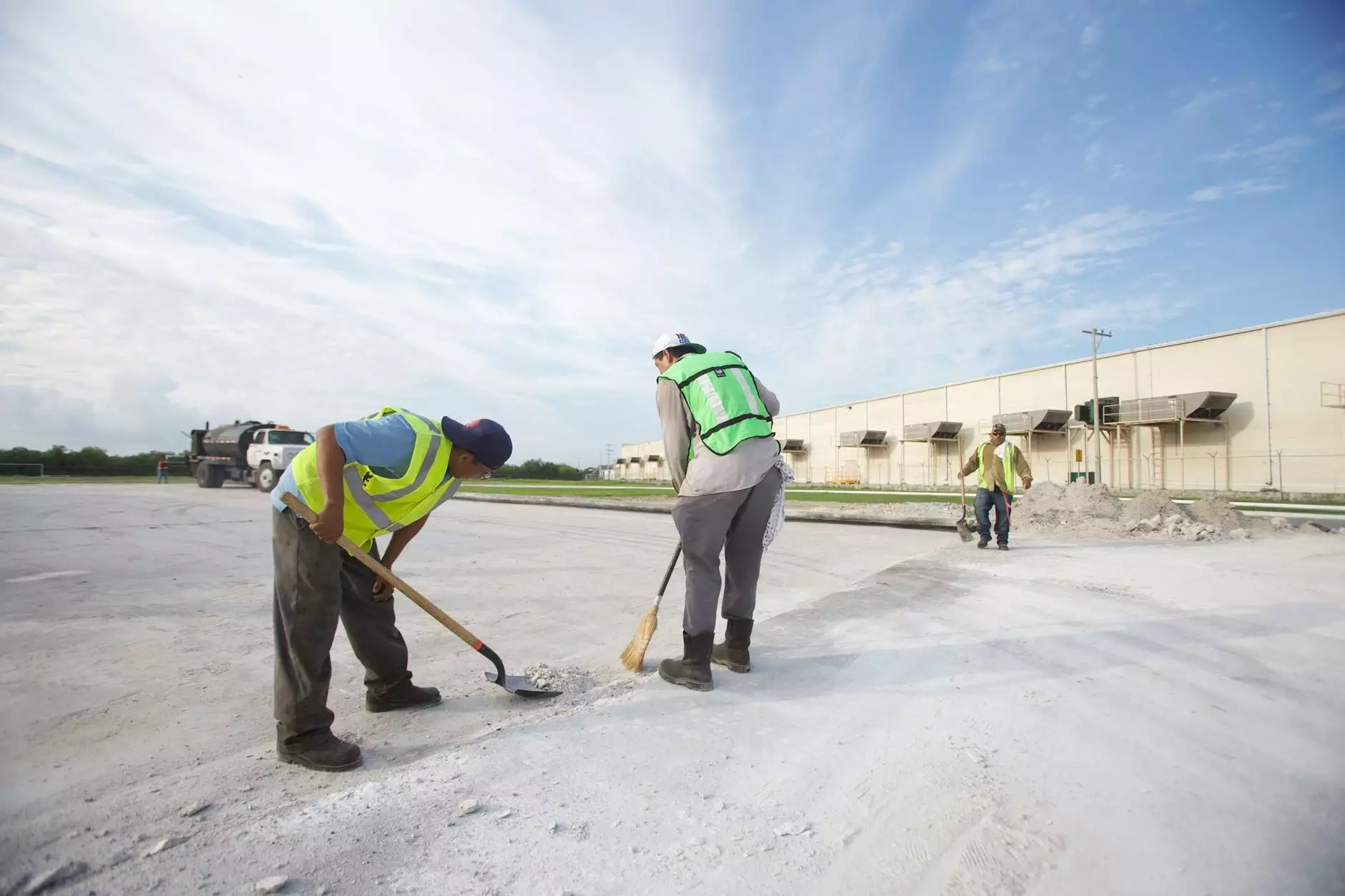The Ultimate Guide to Pool Plaster Repair: Unveiling the Best Practices

When it comes to maintaining the beauty and functionality of your swimming pool, understanding pool plaster repair is crucial. Whether you have noticed unsightly stains, cracks, or erosion in your pool plaster, timely repairs can enhance the longevity of your pool while contributing to its aesthetic appeal. In this comprehensive guide, we will delve into the world of pool plaster repair, empowering you with the knowledge to make informed decisions and keep your pool in pristine condition.
What is Pool Plaster?
Pool plaster is the finishing material applied to the interior surface of swimming pools. It provides a smooth, durable surface that not only enhances the pool's look but also seals the underlying structure. The most common type of pool plaster consists of a mix of cement, sand, and water, often enhanced with additives for extra durability and aesthetics.
Why is Pool Plaster Repair Important?
Maintaining the integrity of your pool plaster is essential for several reasons:
- Structural Integrity: Cracks or damage can compromise the structural stability of your pool, leading to bigger issues and expensive repairs down the line.
- Aesthetics: Flaking, discoloration, and rough patches detract from your pool's visual appeal, making it less inviting.
- Safety: A rough or damaged plaster surface can lead to injuries. Proper repairs ensure a safe swimming environment.
- Water Quality: Holes or cracks in the pool surface can allow water to seep out, causing fluctuations in water levels, which can lead to algae growth and require more chemicals to maintain water quality.
Signs That You Need Pool Plaster Repair
Recognizing the signs that your pool plaster needs repair can save you time and money. Here are some common indicators:
- Cracking: Look for visible cracks or fissures in the plaster surface.
- Staining: Unsightly stains may indicate not only aesthetic issues but also potential underlying problems.
- Rough Texture: If the surface feels rough or blotchy, it may need resmoothing or resurfacing.
- Peeling: Flaking or peeling plaster can expose the underlying shell of the pool to damage.
Types of Pool Plaster Repair
Pool plaster repair can be categorized into several methods, depending on the extent and type of damage:
1. Minor Repairs
For small cracks or chips, a simple patching technique may suffice. Here’s how:
- Clean the area thoroughly.
- Mix a plaster repair compound according to the manufacturer's instructions.
- Apply the compound to the damaged area, smoothing it out to match the surrounding surface.
- Allow it to cure as directed.
2. Replastering
For more extensive damage, you may need to consider replastering. This involves:
- Draining the pool completely.
- Removing the old plaster and preparing the surface.
- Applying a new layer of plaster and finishing it to ensure a smooth surface.
3. Resurfacing
When the surface is worn but not structurally compromised, resurfacing may be a viable option. This involves:
- Cleaning the existing plaster surface.
- Applying a new coating of plaster over the old surface to refresh its appearance.
Choosing the Right Pool Plaster Repair Company
Finding a reliable pool plaster repair company is crucial for ensuring quality repairs. Here are some tips to help you choose wisely:
- Experience: Look for companies with a proven track record in pool plaster repair.
- Reviews and Testimonials: Check online reviews and ask for references to gauge customer satisfaction.
- Services Offered: Ensure they provide a range of services, including emergency repairs, resurfacing, and regular maintenance.
- Warranty: A reputable company should offer warranties on their work to protect your investment.
The Benefits of Professional Pool Plaster Repair Services
While some homeowners may opt for DIY repairs, hiring a professional pool plaster repair company offers numerous advantages:
- Expertise: Professionals bring valuable experience and knowledge, ensuring repairs are done correctly the first time.
- Quality Materials: Professionals have access to high-quality materials that may not be available to the average homeowner.
- Time-Saving: Hiring experts allows you to focus on enjoying your pool rather than dealing with the hassle of repairs.
- Long-lasting Results: Proper repairs done by professionals can extend the life of your pool plaster and save you money in the long run.
Cost Factors in Pool Plaster Repair
The cost of pool plaster repair can vary significantly based on several factors:
- The Extent of Damage: Minor repairs will cost significantly less than full replastering.
- Size of the Pool: Larger pools require more materials and labor, affecting the total cost.
- Location: Costs can vary by region due to labor costs and availability of materials.
- Season: Availability of contractors can influence prices, with peak seasons seeing higher demand and costs.
Preventing Pool Plaster Damage
Prevention is always better than cure when it comes to maintaining your pool plaster. Here are some essential tips:
- Regular Maintenance: Schedule regular cleanings and inspections to identify issues early.
- Proper Water Chemistry: Maintain balanced water chemistry to prevent etching or scaling on the plaster surface.
- Use a Pool Cover: When not in use, a pool cover can protect your plaster from debris and UV rays.
Conclusion
Understanding pool plaster repair is essential for every pool owner. Whether you are dealing with minor cosmetic issues or extensive structural damage, knowing how to address these problems can ensure your swimming pool remains a beautiful and safe retreat for years to come. Selecting a reputable pool plaster repair company is crucial for achieving effective and lasting repairs. By prioritizing regular maintenance and timely repairs, you can enjoy a pristine swimming pool, adding value to your home and enhancing your outdoor living experience. If you are considering pool renovations or repairs, do not hesitate to consult with professionals who can guide you through the process and ensure your pool remains in top shape.









